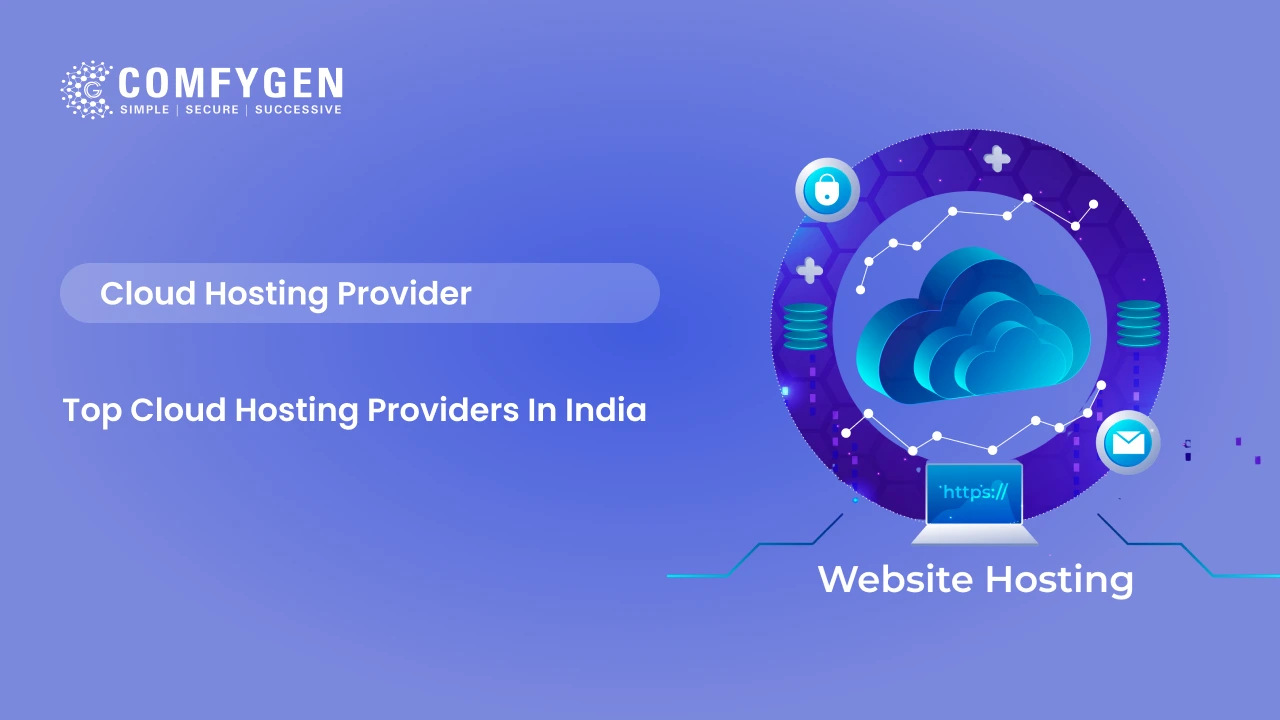Amongst the vibrant streets of India’s startup centers and enterprise IT corridors that buzz day and night, there is one certainty — the cloud is no longer a buzzword, but the enabler of innovation. From SaaS startups in Bengaluru to massive e-commerce hubs in Delhi, companies are shifting away from legacy servers to wiser, elastic cloud-based solutions.
India’s cloud hosting ecosystem is in the midst of a digital revolution. Data localization, rollout of 5G, and government-supported digital push are fueling demand for secure, reliable, and affordable cloud infrastructure. Local players such as Tata Communications and CtrlS are causing a splash, while international behemoths such as AWS, Google Cloud, and Microsoft Azure are strengthening their Indian presence with new data centers.
But in the cloud rush, choosing the best hosting company is more than a matter of technology — it’s strategy. Startups demand flexible, low-cost solutions with space to grow. Enterprises seek strong security, compliance, and uptime assurances. Developers want flexibility, integrations, and vigorous community support.
A misfit can cost more than dollars — it can stall innovation, jeopardize data, and cap growth. That’s why it’s so important to measure cloud partners on performance, price, support, and scalability.
As India rises as a digital powerhouse, cloud hosting in India will be the launchpad for success. Whether you’re a bootstrapped founder or a CTO at a legacy firm, the right cloud partner can be the wind beneath your digital wings.
What is Cloud Hosting?
Cloud hosting is an internet hosting where sites, applications, or files are stored and handled on a network of interconnected virtual servers (the “cloud”) rather than on an individual physical server. The virtual servers borrow resources (such as CPU, RAM, storage) from a pool of physical servers in data centers, which facilitates elastic scaling, improved performance, and high reliability.
Suppose you own a shop. If your shop is located on one road (such as conventional hosting), and the road gets flooded, your shop closes down. However, if your shop has outlets in different places (such as cloud hosting), even if one place encounters an issue, your business carries on elsewhere.
Cloud hosting operates the same way—your site or app is not dependent on a single server. Rather, it’s served by numerous servers. If one crashes, another takes the responsibility.
For instance – Suppose you have an e-commerce website. At a festival, traffic just surges incredibly well. With regular hosting, your website may collapse as there are fewer resources. But with cloud hosting, the system itself calls for additional resources from the cloud to meet the increased traffic—keeping your website running smoothly.
Why to Choose Cloud Hosting Service Providers?
As the cloud landscape keeps changing at a fast rate, companies are turning more towards cloud hosting providers that remain ahead of the game by embracing the current trends. Why? Because innovation is not a buzzword—it is the driving force to performance, cost-effectiveness, and future-proofing.
Let’s get into it more deeper to know why it is intelligent and the most beneficial step to opt for cloud hosting providers that are on par with today’s trends:
1. Greater Scalability and Flexibility
One of the most significant benefits of cloud hosting is on-demand scalability. Trend-based providers are now providing auto-scaling environments that dynamically scale server resources according to traffic spikes, user demand, or performance limits.
Picture an eCommerce site during a flash sale. With trend-based cloud hosting, the infrastructure can scale up in an instant without crashing or slowing down, then scale down when the surge subsides—preserving both performance and cost.
2. Most Recent Security Protocols & Zero Trust Architecture
Security threats are changing, as are the defenses. Trusted cloud service providers are now implementing Zero Trust security models, AI-driven threat detection, and multi-layered data protection protocols.
Having a cloud hosting service that uses the most recent security trends guarantees your data, applications, and customer data are protected against contemporary breaches. This is especially important in fintech, healthcare, and SaaS platforms.
3. Edge Computing Functionality
The emergence of edge computing is transforming the way cloud hosting functions. Companies embracing this trend provide low-latency performance through the placement of servers near the edge of end users—ideal for real-time applications, video streaming, and IoT systems.
With strategically placed data centers, edge-enabled hosting providers eliminate delays, increase speed, and enhance user experience significantly.
4. AI & ML Integration for Intelligent Resource Management
Cloud hosting is no longer only about uptime and storage—it’s about intelligence. Leading providers now employ AI and machine learning for:
- Predictive resource allocation
- Auto-healing infrastructure
- Anomaly detection in traffic or server behavior
This translates into improved uptime, less human intervention, and smarter cost management. Hosting services powered by AI can improve your site or app’s performance without you breaking a sweat.
5. Sustainability and Green Cloud Initiatives
As environmental awareness grows, new cloud providers are embracing **green hosting** approaches—renewable energy, carbon offsetting, and energy-efficient servers.
Selecting a provider according to sustainability trends doesn’t only minimize the carbon footprint of businesses but also attracts green customers and stakeholders.
6. Cost Optimization with Serverless and Pay-as-You-Go Models
The classic “always-on” paradigm is being replaced by serverless computing and pay-as-you-go pricing. They are transforming the way companies use cloud resources.
You only pay for what you consume, and serverless platforms execute your code/functions only when necessary, saving enormous costs, particularly for new start-ups and mid-sized companies with intermittent traffic.
7. Compliance with Global Regulations
Current hosting companies are in harmony with evolving global data regulations—GDPR, HIPAA, ISO standards, etc. This is crucial for organizations that handle sensitive data.
By choosing a trend-conscious cloud partner, you guarantee your data remains compliant across regions and industries, reducing legal risks and penalties.
Top 10 Cloud Hosting Providers!
1. CloudMinister
CloudMinister is India’s cloud hosting company that stands out for its budget-friendly yet performance-oriented cloud offerings. They have a deep presence in both managed and unmanaged cloud services and serve businesses, developers, and agencies searching for highly scalable infrastructure with local support. They have Indian data centers available, making it perfect for latency-sensitive applications.
Key Features
- SSD-based cloud servers
- Managed support with 24/7 monitoring
- DDoS protection and firewall security
- Full root access and control panel features
- India-based data centers
Pricing Highlights
- Price plans begin at ₹600/month
- Enterprise packages are customizable
Pros: Local support, affordable pricing, quick provisioning
Cons: Fewer global infrastructure than the giants
Best Suited For
Startups, small businesses, and agencies are looking for cloud infrastructure localized to their region with personalized support.
2. Amazon Web Services (AWS India)
AWS is the world leader in cloud computing, providing a broad set of services across compute, storage, databases, machine learning, and DevOps. AWS India allows access to their worldwide infrastructure with localized Mumbai and Hyderabad regions, making it suitable for performance-sensitive, compliance-sensitive, and security-sensitive Indian companies.
Key Features
- More than 200 cloud services
- Auto-scaling and load balancing
- Indian high-availability zones
- Machine learning and AI integration
- Global CDN through Amazon CloudFront
Pricing Highlights
- Pay-as-you-go model
- Custom enterprise billing
Pros: Enterprise-class reliability, huge ecosystem
Cons: Complicated pricing, learning curve
Best Suited For
Enterprises, SaaS businesses, and developers who require scalable and global cloud infrastructure.
3. Google Cloud Platform (GCP India)
Google Cloud Platform provides high-performance cloud infrastructure with a strong emphasis on AI, analytics, and data services. The India region for Delhi NCR provides low-latency access for local applications. GCP is highly preferred by developers and data scientists due to the strong tools and seamless integration into Google’s ecosystem.
Key Features
- BigQuery and Vertex AI for superior analytics
- Kubernetes and container-native tools
- Global load balancing
- Auto-scaling VM instances
- Secure and sustainable cloud
Pricing Highlights
- Sustained use discounts
- Free tier for some services
- Custom enterprise pricing
Pros: Robust AI/ML capabilities, quick network, extensive integrations
Cons: Fewer services than AWS
Best Suited For
Businesses that are data-driven, startups, and dev teams building AI, ML, and analytics.
4. Microsoft Azure India
Microsoft Azure offers enterprise-level cloud infrastructure to Indian companies via various data center regions such as Central India and South India. Azure hybrid features, developer tools, and integration with Microsoft solutions make it an easy choice for companies already leveraging Microsoft products
Key Features
- Hybrid cloud with Azure Arc
- Integrated with Office 365, Teams, and Dynamics
- Managed databases, containers, and AI services
- Indian data residency options
- Strong compliance and security
Pricing Highlights
- Pay-per-use model
- Azure Cost Management tools
Pros: Smooth Microsoft integrations, local zones
Cons: Can become costly for small projects
Best Suited For
Enterprises, IT teams with the Microsoft stack, and government projects.
5. DigitalOcean India
DigitalOcean is well-liked among developers and startups due to its ease, predictable price, and developer-centric tools. With India-based data centers through partnerships, DigitalOcean provides a minimalistic UI and solid documentation, making cloud deployment less scary for small teams.
Key Features
- Droplets (VMs), Kubernetes, and databases
- Pre-configured 1-click apps
- Simple dashboard and API
- Global and Indian data center access
- Developer-first experience
Pricing Highlights
- Starts at $4/month (~₹335)
- Transparent, flat-rate pricing
Pros: Easy to use, affordable, strong developer community
Cons: Lacks some advanced enterprise features
Best Suited For
Startups, indie developers, and SMBs launching apps or SaaS.
6. Linode (by Akamai)
Linode, acquired by Akamai, is a cloud platform built for developers, providing high-performance Linux cloud servers. With an expanding global presence and a transparent approach, Linode attracts budget-friendly developers seeking alternative offerings to the heavyweights of the cloud universe without compromising quality.
Key Features
- Easy VM provisioning
- Flat-rate pricing
- Fast SSDs and NVMe
- API-first design
- DDoS protection and backups
Pricing Highlights
- Beginning at $5/month (~₹420)
- Predictable cost with no surprises
Pros: Simple pricing, consistent performance
Cons: Works only with Linux-based workloads
Best Suited For:
Tech-savvy developers, small firms, and budget-friendly projects.
7. Cloudways
Cloudways is a managed cloud hosting solution that streamlines cloud server setup on top of providers such as DigitalOcean, AWS, GCP, and Linode. It’s perfect for users who desire the scalability of the cloud without the hassle of infrastructure management in the tech world, keeping up with the latest trends.
Key Features
- Supports 5 leading IaaS platforms
- 1-click app installs (WordPress, Magento, etc.)
- Monitoring & backups of performance
- Built-in CDN & caching
- Free SSL and staging environments
Pricing Highlights
- Begin at $14/month (~₹1,175) for servers hosted on DigitalOcean
- Pay-as-you-go pricing
Pros: Managed support, multi-cloud option
Cons: A tad more expensive than unmanaged hosting
Best Suited For:
Agencies, developers, and non-tech founders require managed cloud hosting.
9. Hostinger India (Cloud Plans)
Hostinger cloud plans strike a balance between performance and usability for users in India. Supported by worldwide infrastructure and affordable pricing, it’s ideal for website owners requiring an upgrade from shared hosting without going too deep into server management.
Key Features
- Hosts up to 300 websites
- SSD storage with built-in caching
- Control panel (hPanel)
- 24/7 support
- Daily backup and free migration
Pricing Highlights
- Available from ₹599/month for the cloud startup plan
- 30-day money-back guarantee
Pros: Affordable, easy for beginners, quick loading speed
Cons: Limited server control
Best Suited For:
Bloggers, small business websites, and freelancers who are upgrading from shared hosting.
9. MilesWeb
MilesWeb is an Indian homegrown hosting company with a keen emphasis on affordability as well as customer care. Their cloud hosting solutions suit beginners as well as mid-sized businesses, providing scalable plans supported by Indian data centers as well as managed services.
Key Features
- Managed cloud on AWS and DigitalOcean
- Free SSL, cPanel, and migrations
- SSD storage and uptime guarantee
- Real-time monitoring of servers
- 24/7 technical support
Price Highlights
- Begin at ₹149/month for managed cloud
Pros: Value for money, good for SMBs, Indian support
Cons: Interface not as glossy as international competitors
Best Suited For
Local businesses, digital agencies, and ecommerce stores.
10. HostingRaja
HostingRaja is an Indian web host that provides cloud solutions with localized performance, multilingual support, and competitive pricing. It is for businesses preferring Indian language support and looking for affordable cloud plans with minimal management. A key differentiator is their integration of Indian payment gateways and localized technical support in regional languages. With data centers located within India, HostingRaja ensures low latency and faster access for domestic users. Competitive pricing within the business’s budget covering business operation needs, 24/7 technical assistance, and free migration support make it a convenient, easy enough and clear choice for businesses looking to host locally while maintaining high standards of uptime and security.
Key Features
- Indian language customer support
- SSD cloud hosting with cPanel
- Security features such as malware scan & firewall
- Free website creation
- Automated backups and load balancing
Pricing Highlights
- Cloud plans starting at ₹1237/month
- Special discounts for annual plans
Pros: Local support, cost-effective
Cons: Limited international scalability
Best Suited For:
Small companies, regional brands, and first-time website builders in India.
Comparison Table of Cloud Hosting Providers
| Provider | Uptime | Speed (Server Response) | Support | Key Features |
| CloudMinister | 99.95% | Fast (India-optimized) | 24/7 Indian support | SSD storage, DDoS protection, budget-friendly, and custom plans |
| AWS India | 99.99% | Fast (Global CDN + Local AZs) | 24/7 global support | Scalable compute (EC2), S3 storage, AI/ML, enterprise-grade security |
| GCP India | 99.99% | Fastest (Premium tier network) | 24/7 support | Kubernetes, BigQuery, AI/ML tools, strong data analytics |
| Azure India | 99.99% | Fast (Integrated CDN) | 24/7 support | Hybrid cloud, Windows-friendly, enterprise integrations |
| DigitalOcean | 99.99% | Fast | 24/7 ticket + chat | Developer-friendly, droplets, Kubernetes, predictable billing |
| Linode (Akamai) | 99.99% | Fast | 24/7 ticket + chat | High performance, flat pricing, global network |
| Cloudways | 99.99% | Fast | 24/7 managed support | Managed hosting on AWS, DO, GCP; free migration, built-in caching |
| Hostinger India | 99.90% | Decent (India servers) | 24/7 chat support | Affordable, easy UI, free domain/SSL, auto backups |
| MilesWeb | 99.95% | Good (India servers) | 24/7 chat & phone | Free migration, cPanel, SSD storage, beginner-friendly |
| HostingRaja | 99.90% | Moderate | 24/7 support | Indian languages support, low-cost plans, Windows/Linux hosting |
Final Thoughts!
In today’s fast-paced digital world, its important to choose or the right cloud hosting provider is more than just ticking boxes or at least to be at the right path in tech industry—it’s about finding a partner that aligns with your business goals. We’ve explored the top cloud hosting providers in India, including giants like AWS, GCP, and Azure, as well as performance-focused players like CloudMinister, DigitalOcean, Cloudways, and Akamai (Linode). For those seeking reliable local support, HostingRaja and MilesWeb bring strong India-centric services to the table.
All providers have something distinct to provide—whether in terms of scalability, security, speed, or developer-friendliness as well and these service providers have the best cPanel hosting services in India. The most suitable hosting service depends on your requirements. Startups might favor flexibility and affordability, whereas enterprises would look for compliance and performance.
Want to scale your online presence? Opt smart, host smarter!
Assess your requirements, compare your choices, and invest in a hosting platform that scales with you.

Mr. Saddam Husen, (CTO)
Mr. Saddam Husen, CTO at Comfygen, is a renowned Blockchain expert and IT consultant with extensive experience in blockchain development, crypto wallets, DeFi, ICOs, and smart contracts. Passionate about digital transformation, he helps businesses harness blockchain technology’s potential, driving innovation and enhancing IT infrastructure for global success.









